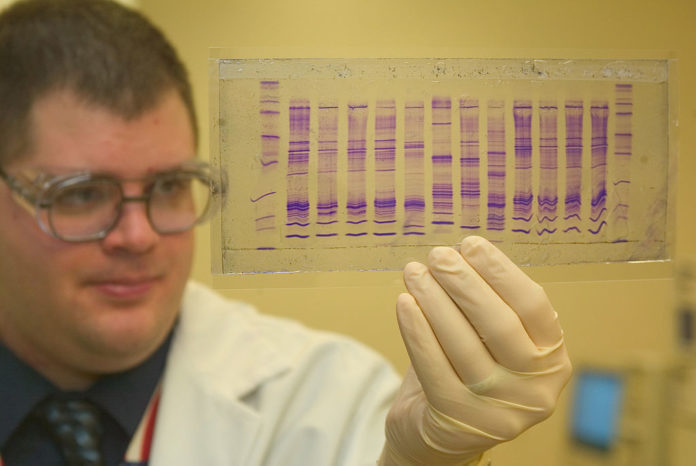
New chip based blood analysis enables comprehensive genetic profiling of all cancer cells allowing more accurate treatment
A new way to cleanly separate out cancer cells from a blood sample enables comprehensive genetic profiling of the cancer cells, which could help doctors target tumors and monitor treatments more effectively.
It is a dramatic improvement over current approaches because it also encompasses the variation among cancer cells within a single patient.
Findings were published in Nature Communications.
“Our chip allows us to capture pure circulating tumor cells and then extract genetic information without any contamination from red and white blood cells,” said Euisik Yoon, U-M professor of electrical engineering and computer science and senior author on the study.
“Before, we could measure two or three genes at a time with staining methods, but now we get a comprehensive picture of circulating tumor cells by measuring thousands of genes in each cell at once”
Many modern cancer drugs work by going after cells with certain genes in play but these genes aren’t uniformly active in a patient’s cancer cell population and can change over the course of treatment.
Repeated biopsies to monitor the tumor are painful and potentially dangerous for the patient. Capturing cancer cells from blood samples offers a noninvasive way to observe whether the cancer is disappearing or whether it is becoming resistant to the treatment.
“It allows you not only to select targeted therapies, but to monitor the effects of these therapies in patients by doing this blood test,” said Max Wicha, the Madeline and Sidney Forbes Professor of Oncology at the University of Michigan and senior physician on the study.
The team collected and analyzed 666 cancer cells from the blood of 21 breast cancer patients by using this new chip.
Researchers had previously shown that cancer metastasis is mediated by cancer cells that have the properties of stem cells. In this study, about 30-50% of the cancer cells captured from the blood samples displayed stem-like properties.
This population is particularly easy to miss with techniques that capture clean-but-incomplete samples of cancer cells from patient blood by grabbing onto proteins on the cells’ surfaces. The key technology is a chip with a system of channels and chambers by which researchers were able to get a clean sample of isolated cancer cells and carried out genetic profiles.
“Before, we could measure two or three genes at a time with staining methods, but now we get a comprehensive picture of circulating tumor cells by measuring thousands of genes in each cell at once,” said Yu-Chih Chen, U-M assistant research scientist in electrical engineering and computer science and co-first author on the study.
Cancer treatment is challenging because cancers change their gene expression as drugs kill off some cells but not others. Researchers expect to be using the new device to track the progress of patients in an upcoming drug trial.












